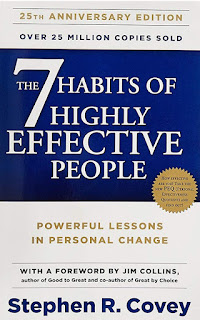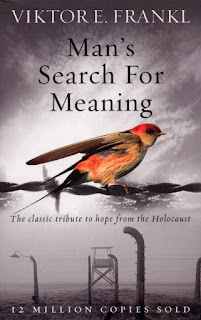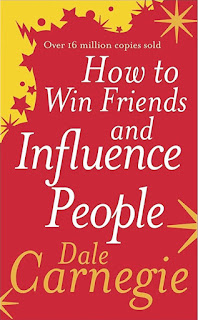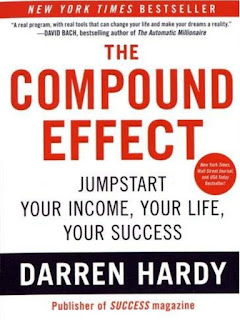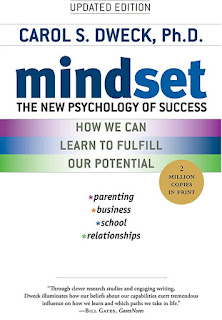Top 10 Motivational Books of all Time
1) Think and Grow Rich
by Napolean Hill
For more than a decade, the author interviewed some of the wealthiest and most successful people in the world. It was based on what author learnt in the process from all these people, when asked about how they achieved not just great riches but also personal wellbeing. The author formulated hundreds and thousands of answers, into concise principles which when acted upon, many claim, can help one achieve unprecedented success.
The author has in many places narrated short stories and examples that help explain the concept at hand in an engaging manner. Think and Grow Rich teaches not just concepts but also methods. It is not a book that a reader can use for one time consumption. The book, even author recommends, has to be read one chapter at a time and in sequence. Several readers and even some motivational speakers claim to have been reading this book over and over again, few pages at a time, for a long time now. Till date, it remains the number one self help book in the world, as far as sales are concerned!
2) The 7 Habits of Highly Effective People: Powerful Lessons in Personal Change
by Stephen R. Covey
When Stephen Covey first released The Seven Habits of Highly Effective People, the book became an instant rage because people suddenly got up and took notice that their lives were headed off in the wrong direction; and more than that, they realized that there were so many simple things they could do in order to navigate their life correctly. This book was wonderful education for people, education in how to live life effectively and get closer to the ideal of being a ‘success’ in life.
But not everyone understands Stephen Covey’s model fully well, or maybe there are some people who haven’t read it yet. This is definitely true because we still see so much failure all around us. Now, I am not saying that by using Covey’s model, or anyone else’s model for that matter, you can become a sure-shot success, but at least we should have seen many more successes around us already judging by the number of copies the book has sold! So, where is the shortcoming?
There are two main problems here, and we are talking only about the people who have read the book already. The first problem is that most people are too lazy to implement the ideals of Stephen Covey in their lives. They consider his masterpiece of a book as a mere coffee-table book or a book that you use for light reading when you are traveling and then forget all about it. They do not realize that this book contains life-changing information. Or, they take the information and do not make the effort to actually utilize it so that it becomes knowledge for them.
The second problem is that a lot of people have a myopic view of Covey’s ideals. These are people who are impressed by the book already. If you ask them what the seven habits are, they can rattle them off end to end, but then they miss the larger picture. They do not understand that Covey was trying to tell more than he wrote in words. There are hidden implications in this book, yes, and a lot of people have just failed to see through them.
That is what we are trying to do. We are trying to show you how Covey’s book, or rather, his model, was a complete model in itself. There was nothing amiss about it. If you implement it, there should be no aspect of your life that should go untouched. The only thing is that you have to understand these ideals and try to implement them in your life.
But, before we barge into that area, it is extremely important to understand what these ideals are. What was the model that was propounded by Stephen Covey in his mega-famous book? We shall begin by trying to understand his model first, and then interpret it in such a way that it pertains to every aspect of our life.
But not everyone understands Stephen Covey’s model fully well, or maybe there are some people who haven’t read it yet. This is definitely true because we still see so much failure all around us. Now, I am not saying that by using Covey’s model, or anyone else’s model for that matter, you can become a sure-shot success, but at least we should have seen many more successes around us already judging by the number of copies the book has sold! So, where is the shortcoming?
There are two main problems here, and we are talking only about the people who have read the book already. The first problem is that most people are too lazy to implement the ideals of Stephen Covey in their lives. They consider his masterpiece of a book as a mere coffee-table book or a book that you use for light reading when you are traveling and then forget all about it. They do not realize that this book contains life-changing information. Or, they take the information and do not make the effort to actually utilize it so that it becomes knowledge for them.
The second problem is that a lot of people have a myopic view of Covey’s ideals. These are people who are impressed by the book already. If you ask them what the seven habits are, they can rattle them off end to end, but then they miss the larger picture. They do not understand that Covey was trying to tell more than he wrote in words. There are hidden implications in this book, yes, and a lot of people have just failed to see through them.
That is what we are trying to do. We are trying to show you how Covey’s book, or rather, his model, was a complete model in itself. There was nothing amiss about it. If you implement it, there should be no aspect of your life that should go untouched. The only thing is that you have to understand these ideals and try to implement them in your life.
But, before we barge into that area, it is extremely important to understand what these ideals are. What was the model that was propounded by Stephen Covey in his mega-famous book? We shall begin by trying to understand his model first, and then interpret it in such a way that it pertains to every aspect of our life.
3) Man's Search for Meaning
by viktor E. Frankl
He propounded the theory that it is Man's constant search for meaning that allows him to survive even the most brutal, the most degrading situations in his life.
He said there are only two races in the world, the decent and indecent. They will maintain their innate beliefs, no matter which side they are on. The decent ones will try to help the fellow human beings and the indecent ones will be selfish and serve themselves at the cost to the others.
Frankl's views were different from those of the leading psychologist of his times, Freud and Adler. His research was intensely personal and unique. His findings of human behaviour were based on the most extenuating circumstances that humans face. He suffered holocaust along with several other inmates and he observed their behaviour closely. He found that those with a capability to focus on love were the ones that survived. He based this observation on a long walk he was forced into by his captors. His companion spoke about his wife. This made Frankl think about his wife and the thought of her took his mind away from his current agony of being hit with rifle butts by his captors for dawdling.
4) The Alchemist
by Paulo Coelho
Paulo Coelho's enchanting novel has inspired a devoted following around the world. This story, dazzling in its powerful simplicity and soul-stirring wisdom, is about an Andalusian shepherd boy named Santiago who travels from his homeland in Spain to the Egyptian desert in search of a treasure buried near the Pyramids. Along the way he meets a Gypsy woman, a man who calls himself king, and an alchemist, all of whom point Santiago in the direction of his quest. No one knows what the treasure is, or if Santiago will be able to surmount the obstacles in his path. But what starts out as a journey to find worldly goods turns into a discovery of the treasure found within. Lush, evocative, and deeply humane, the story of Santiago is an eternal testament to the transforming power of our dreams and the importance of listening to our hearts.
5) Tuesdays With Morrie: An Old man , a young man , and life's greatest lesson
by Mitch Albom
Maybe it was a grandparent, or a teacher or a colleague. Someone older, patient and wise, who understood you when you were young and searching, and gave you sound advice to help you make your way through it. For Mitch Albom, that person was Morrie Schwartz, his college professor from nearly twenty years ago.
Maybe, like Mitch, you lost track of this mentor as you made your way, and the insights faded. Wouldn't you like to see that person again, ask the bigger questions that still haunt you? Mitch Albom had that second chance. He rediscovered Morrie in the last months of the older man's life. Knowing he was dying of ALS - or motor neurone disease - MItch visited Morrie in his study every Tuesday, just as they used to back in college. Their rekindled relationship turned into one final 'class': lessons in how to live.
TUESDAYS WITH MORRIE is a magical chronicle of their time together, through which Mitch shares Morrie's lasting gift with the world.
6) You Can Heal Your Life
by Louise Hay
'You Can Heal Your Life’ is practical and insightful books which help in evaluating the do’s and don’ts of life. Your mind plays an important role in the well-being of the body. The book is appreciated by various people for its content. The writer provides guidance towards the right path to heal your life. The author has been able to explain just how our negative thoughts and beliefs about ourselves are able to lead to various health conditions and emotional issues that can ruin our lives.
The right thought pattern can heal anything, change the way of thinking and your body will be fit and fine. The book is all about the in-depth relationship between the body and mind. You Can Heal Your Life is a gift from the author Louise L. Hay. Let us give this gift to ourselves and our dear ones in order to keep them fin and healthy always. Stay away from the negative thoughts and negative beliefs and see the change into your life. Just by simple healing techniques make your dreams come true and create a truly happily ever after life.
7) How to Win Friends and Influence People
by Dale Carnegie
you can buy this book from amazon-https://amzn.to/2RWHw4A
You can go after the job you want...and get it! You can take the job you have...and improve it! You can take any situation you're in...and make it work for you!
Since its release in 1936, How to Win Friends and Influence People has sold more than 15 million copies. Dale Carnegie's first book is a timeless bestseller, packed with rock-solid advice that has carried thousands of now famous people up the ladder of success in their business and personal lives.
As relevant as ever before, Dale Carnegie's principles endure, and will help you achieve your maximum potential in the complex and competitive modern age.
Learn the six ways to make people like you, the twelve ways to win people to your way of thinking, and the nine ways to change people without arousing resentment.
You can go after the job you want...and get it! You can take the job you have...and improve it! You can take any situation you're in...and make it work for you!
Since its release in 1936, How to Win Friends and Influence People has sold more than 15 million copies. Dale Carnegie's first book is a timeless bestseller, packed with rock-solid advice that has carried thousands of now famous people up the ladder of success in their business and personal lives.
As relevant as ever before, Dale Carnegie's principles endure, and will help you achieve your maximum potential in the complex and competitive modern age.
Learn the six ways to make people like you, the twelve ways to win people to your way of thinking, and the nine ways to change people without arousing resentment.
8) The Compound Effect
by Darren Hardy
9) The One Thing
by Gary Keller
The book, The One Thing, explains how the habit to succeed can be incorporated in our life to overcome the hurdles like the lies that will block our success, the thieves that will steal our time and increase our concentration in the purpose, the way we prioritize and the productivity of our business. The book comes in handy for people indulged in business and helps them increase the efficiency of their work and remove the hindering factors. The book is easy to read and substantial in the ideas it conveys.
The One Thing is a book that focuses on how to avoid perplexing distractions that come on one's way. By doing this, they can concentrate on the one thing that is the most important at that point of time. The book says that one wants fewer distractions on their daily life, be it professional or personal, so that the most important thing can be heeded. Likewise, one also wants more productivity so that their work flourishes. The book says that one wants less and more at the same time and it can be had by following certain methods.
The book assists in reducing daily life stress, triggering one's motivation to get enthused in their actions targeted on their goals, overcome the feeling of exhaustion caused by overwhelming events and achieve better results in an effective time period.
In this brilliant book, she shows how success in school, work, sports, the arts, and almost every area of human endeavor can be dramatically influenced by how we think about our talents and abilities. People with a fixed mindset—those who believe that abilities are fixed—are less likely to flourish than those with a growth mindset—those who believe that abilities can be developed. Mindset reveals how great parents, teachers, managers, and athletes can put this idea to use to foster outstanding accomplishment.
In this edition, Dweck offers new insights into her now famous and broadly embraced concept. She introduces a phenomenon she calls false growth mindset and guides people toward adopting a deeper, truer growth mindset. She also expands the mindset concept beyond the individual, applying it to the cultures of groups and organizations. With the right mindset, you can motivate those you lead, teach, and love—to transform their lives and your own.
In this edition, Dweck offers new insights into her now famous and broadly embraced concept. She introduces a phenomenon she calls false growth mindset and guides people toward adopting a deeper, truer growth mindset. She also expands the mindset concept beyond the individual, applying it to the cultures of groups and organizations. With the right mindset, you can motivate those you lead, teach, and love—to transform their lives and your own.



